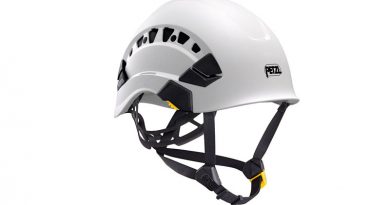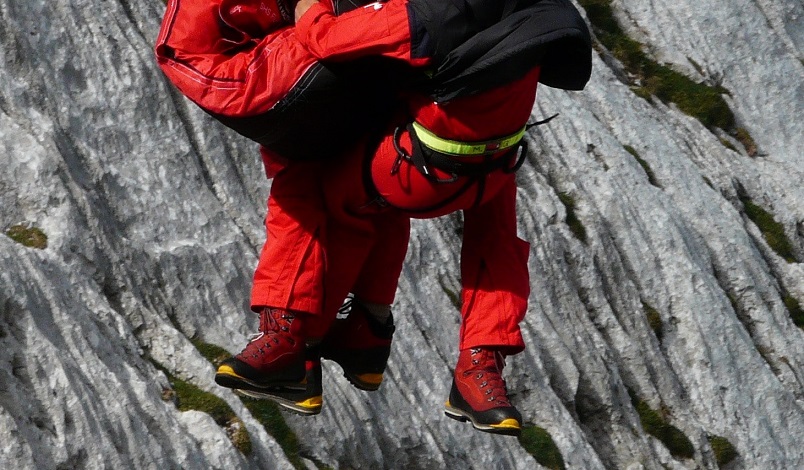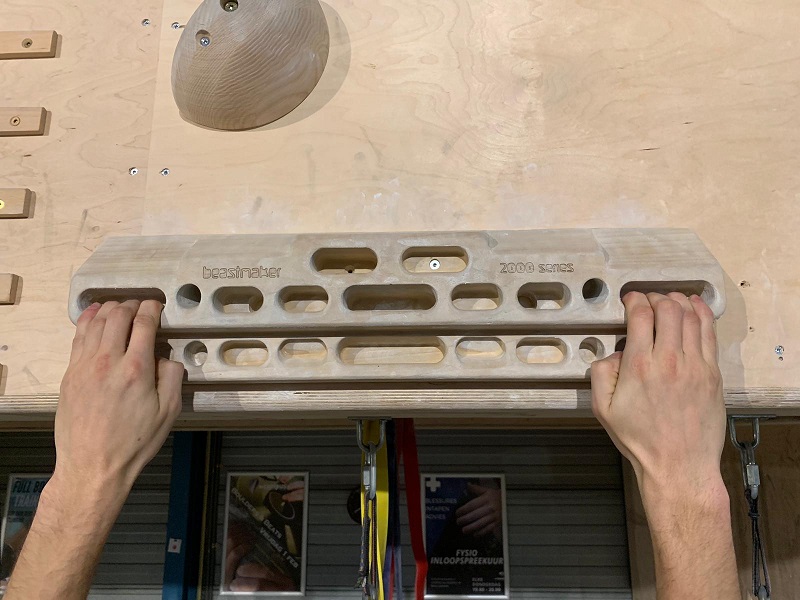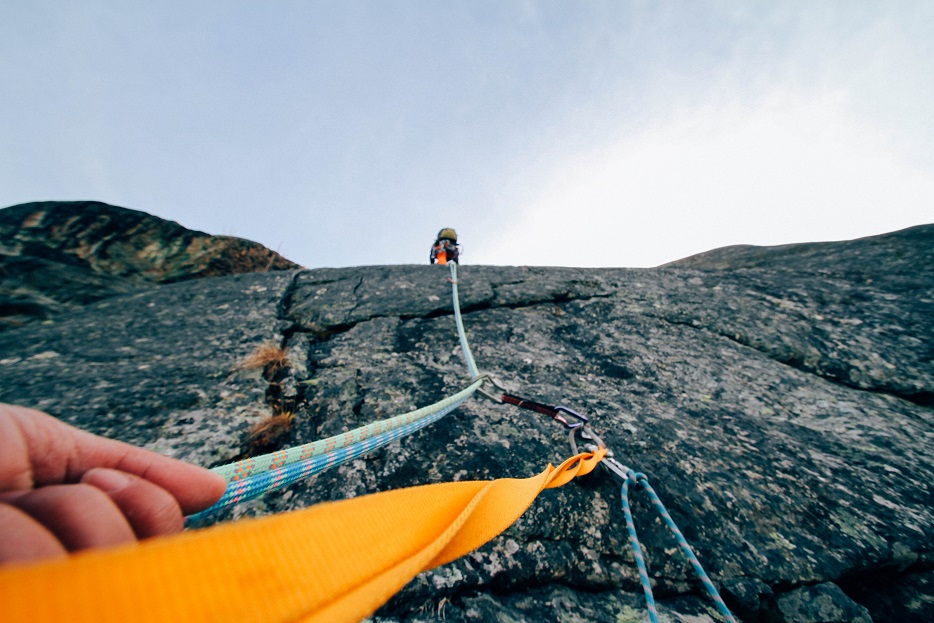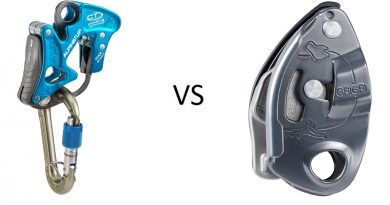So you’re looking to get into rock climbing.
Good for you—you’re on track for some of the greatest adventures of your life.
Before you can start your journey, however, there are some things you need to set in order. Most importantly, you need to find a quality rope that will give you the safety and assurance necessary to enjoy rock climbing.
There are several qualities you should look for when it comes to the right rope. Let’s look at a list of these qualities so that you can make the right decision when the time comes.
Additionally, it’s important to understand that the type of rope you will need depends on your purpose and what type of climbing you intend to do.
This article will examine everything you need to know to buy the best rope. Furthermore, we provide you with a list of your five best options with ropes currently on the market.
In case you’re too impatient to scroll down, here are the 5 best climbing ropes for beginners:
- Mammut Infinity Climbing Rope
- Beal Tiger Unicore
- Bluewater Lightning Pro
- Petzl Volta
- Sterling Evolution Velocity 9.88mm Dry-Core Rope
Are you ready?
Let’s dive right in!
Types of Ropes
If you are going to be a successful rock climber, it’s crucial that you understand the type of rope you will need. Specifically, there are two types of rope: dynamic and static.
Dynamic ropes are what you think of when you think about rock climbing. Basically, these ropes are perfect for climbing as they are designed to absorb the impact of falls. Of course, the amount of impact a rope can absorb is determined on the specific brand and product you buy.
Static ropes are used for a different purpose. You will still want to keep one in your rope climbing kit, but you should never use a static rope for lead climbing. Specifically, these ropes are meant for lowering injured climbers, hauling loads up, and ascension.
Understanding the distinction between these two types of ropes is critical for safe and successful climbing.
So what type of dynamic ropes are best for beginners and what qualities do they possess?
To best understand this, let’s break ropes down into three smaller categories.
Single Ropes
What image pops into your head when you think about rock climbing?
Chances are, you envision a man or woman climbing a single rope. That’s because most rock climbing ropes are single ropes—which makes them perfect for beginners.
A single rope is generally not designed for use with any other rope. Instead, the climber uses the rope on its own. You will be able to distinguish a single rope by a circled number one located on either end of the equipment.
It’s important to understand that single ropes are a category of rope that contain many different dynamic ropes of various lengths and diameters. If you are a beginner rock climber, it’s a good first step to know that you will be using a single rope. However, you must narrow in more on the specifics to determine which rope is the best for your purpose.
Half Ropes
Half ropes are a more advanced type of rope that are used in multi-pitch rock routes. While there are many advantages to using half ropes, they are generally not suitable for beginner rock climbers. To begin with, half ropes require the use of two ropes to climb, and they are usually heavier than single ropes. This extra weight makes them trickier to navigate.
Keep in mind that you can use half ropes with another advanced partner (when you get to that level). Until then, make sure that you only use ropes as they are designed to be used. To know if a rope is a half rope, look at either end of the equipment for a ½ symbol.
Twin Ropes
Twin ropes are a more advanced two-rope system that work similarly to the half rope system. Twin ropes are clipped through each strand of available protection to provide for greater drag and ease with routes. Though these are considered advanced ropes, they are generally lighter and do not require as much exertion as half ropes simply because they carry less weight.
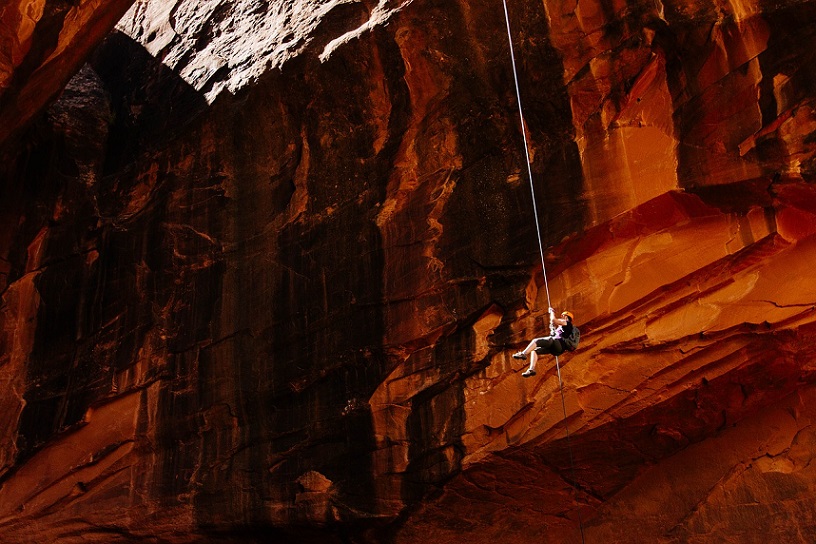
Best Ropes for Beginners
Now that you know the difference between more advanced two rope systems and beginner single rope systems, it’s important to find the best rope for you. Remember what we said before?
The type of rope you will need will largely depend on your purpose. In general, beginning rock climbers may wish to start out in controlled rock climbing environments. For example, these are manmade rock walls that are great for beginners and those seeking rock climbing lessons.
Keeping this in mind, let’s look at the qualities you want in your rope. For this review, we will focus on beginner ropes that are good for both indoor and outdoor use.
Length
Today, 70-meter ropes are becoming popular options amongst serious climbers who are looking for easier rappelling and greater climbing distance.
Despite this, it’s recommended that beginning climbers go with standard 60-meter ropes. This is the case for a variety of reasons.
To begin with, 60-meter ropes are lighter. When you are just starting out—whether indoors or outdoors—you should make the climb as easy as possible. You want to avoid adding extra stress to your climb until you are ready to take on the burden.
Knowing this, 60-meter ropes are the ideal option for beginners who are just getting the feel of climbing.
What’s more, you will find it easier to find a beginner rope that’s 60 meters. This isn’t just because they are easier. It’s also because a length of 60 meters has been considered standard in rock climbing for decades.
The Mammut Infinity Climbing Rope is perfect for beginners. Available in both 60 meter and 70 meter options, this rope is ideal for beginners who are looking for a great starter rope with advancement options.
What’s more, the Mammut Infinity Climbing Rope is available for both indoor and outdoor options. Whether you are looking to climb your gym’s rock wall or try out some multi-pitch routes, this rope can do it all. Better yet, the price is right for each of the rope lengths you can choose from – this rope gives you all you need for a price you can afford.
Diameter
When selecting your first climbing rope, it’s important that you note its diameter.
The diameter of your rope influences it in several ways—and you should understand exactly how before attempting to make your first climb.
Let’s take a moment to examine the different ways in which diameter can influence your climb:
- Affects Durability
Importantly, the diameter of a rope is directly correlated to its durability. Generally speaking, if you’re getting into rock climbing, you’re going to want to make sure that your rope is durable, as this can protect your safety.
For those looking for maximum durability, a rope with a thicker diameter is a must. If you’re still not sure which rope to get, don’t worry. We’ve got you covered.
For a great durable option, check out the Beal Tiger Unicore. One of the leading thick rope options, this reliable rope boasts great durability. What makes this rope so great is that it can be used for virtually all of your rock climbing needs. With a diameter of 10mm, it’s one of the thicker ropes on the market, but it has a surprisingly light weight—making it easier to use than other ropes its size.
With 50, 60, and 70-meter options available, you can enjoy greater flexibility in choosing the rope that’s right for you.
The Bluewater Lightning Pro is another great option. It’s slightly thinner at only 9.7mm, but it’s also one of the more durable ropes on the market.
- Affects Handling
While these thicker rope options are great for durability, they do have a drawback. Ropes with a thick diameter are more difficult to handle.
For beginners, this can pose a safety issue in and of itself. The handling of your rope is important to being able to tie the right knots and to properly threading it through your belaying device.
For this reason, many beginning rock climbers may find it easier to use thinner diameter ropes. While they aren’t as durable, they are a better option for those who aren’t as versed in rope handling.
If you’ve got ambitious rock climbs in your plans, a thin rope might be more suitable. Though it’s not going to last as long as thicker options, its light weight will give you more flexibility as you climb.
At only 9.2mm, the Petzl Volta provides the maximum benefits for those looking for a lightweight, thin rope.
This great rope allows for easy handling and tying, making sure that even beginners are able to safely secure their ropes.
- Determines the Best Use
At the end of the day, you should consider buying ropes of different diameters depending on what you’re looking to do.
It may be that as a beginner, you will mainly be looking for something that can get you through simple climbs.
In that case, a thicker rope has you covered.
If you’re looking to try more advanced feats, however, thinner and lighter ropes will likely work better. If you feel as if you need more flexibility to maneuver during your climb, these thinner ropes are your best bet.
Dry-Treated Ropes
Another important quality to look for you in your rope is to see if it has been dry treated. Dry-treated ropes are perfect for those who are looking for a little more security in their climb. While most sport climbers won’t have to worry about whether or not their ropes are dry, it’s always a good idea for a beginner to go with the safer option.
Specifically, dry-treated ropes are treated to prevent against the absorption of water. If your rope retains water, it will be less durable in the case of a fall.
Obviously, you don’t want that to happen.
While even ropes that have not been dry treated will regain all their strength and durability when they dry out, it’s a good idea to shell out a few extra bucks to give yourself a little extra security. This is especially true if you don’t want to wait the extra time to make sure your rope dries out.
The Sterling Evolution Velocity 9.88mm Dry-Core Rope is the perfect rope for beginners who are looking for thicker, dry-treated options. Though this rope is heavier than some other beginner ropes, it is a good, durable option that will hold up—even in bad conditions.
As such, it’s recommended for anyone who doesn’t mind a small amount of extra weight—beginners included.
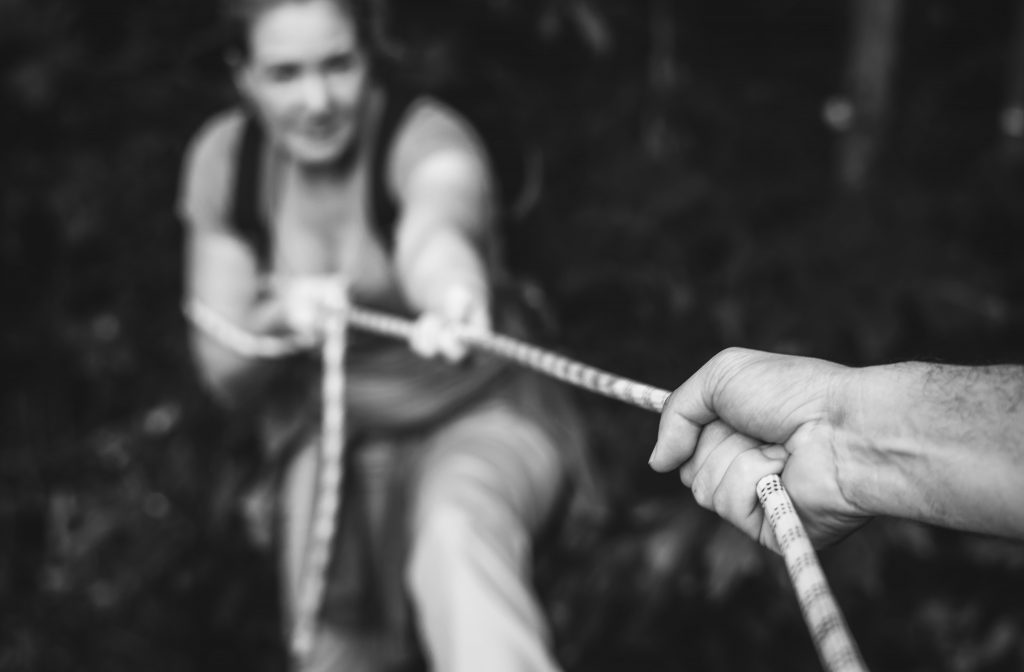
The Bottom Line
No matter what type of rock climbing you are looking to get into, it’s important that you find a quality rope.
Finding a quality beginner rope is crucial to your safety and success as a rock climber. As such, you should make sure that you are buying the right rope for your rock climbing purposes.
In this guide, we’ve discussed several types of ropes that are good for beginners. We’ve also compared them against more advanced options to help you differentiate between beginner and advanced roping systems.
In general, as a beginner, you will want to choose a single rope system that allows you maximum safety, protection, and ease as you climb. The ropes provided in this guide are great options for any aspiring climber.
To recap, you will want to pay attention to the length (and weight), diameter, and dry-treatment status of your rope before you make your purchase. If you are planning on climbing outdoors, it’s imperative that you find a dry-treated rope that will hold up and fight against water absorption.
It’s also important that you find the right balance between weight, length, and diameter. As a rule, longer or thicker ropes are weightier and might not be the best options for beginners. Still, you want to choose a rope that is thick enough to be durable and lengthy enough to suit all your rock climbing needs.
So there you have it! We hope this guide helps, and of course, always remember to use whatever rope you purchase as it was designed to be used.



